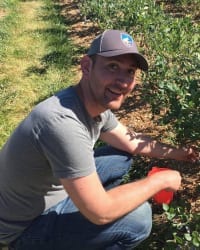
We all love hearing the cackling, giggling, and uninhibited screams of joy from children who are out and about playing. Seeing children play is a joyous moment in itself—we are often brought back to a simpler time, when life was about having fun and enjoying ourselves.
Play allows us to learn how to be creative and helps nurture critical thinking, personality development, and adaptive pathways for us in childhood. The benefits of play are far-reaching, but we often give up play as adults for more serious pursuits such as our careers, our relationships, and our families—all of which are valid pursuits.
But what if we could tap into play to enhance our life experiences, our professions, our relationships, and our family lives as adults as well?
Play for adults is critical in our stressful go-go-go lives. Play has been shown to release endorphins, improve brain functionality, and stimulate creativity. And it can even help to keep us young and feeling energetic. Studies show that play improves memory and stimulates the growth of the cerebral cortex. Play has also been shown to trigger the secretion of BDNF, a substance essential for the growth of brain cells.
One of the things that may often stop us from playing is that we, as adults, get very set on who we are and the types of activities that we do and do not like. But play is healthy and fun, so it benefits us to figuratively—or literally—roll the dice and allow play back into our lives.
One of the definitions of play, from the Oxford English Dictionary, is to wield lightly and freely; to keep in motion.
Who wouldn’t like to experience more moments of lightness and freedom in our days? Play is so key and yet so often overlooked in adulthood. Fortunately we can easily create a play practice in our lives as there are many different ways to play and many different types of play. Stuart Brown, MD, has been studying play for decades and in his book, Play, he outlines the five play archetypes that he has observed during his years of research. He discussed these and more in his TED Talk, titled “Play is more than just fun” (paraphrased and expanded upon below).
Rough-and-Tumble Play
Rough-and-tumble play is a great learning medium for all of us. Diving, batting, tug-of-war, capture the flag, scavenger hunts, kickball, and dodge ball are all ways to play actively. According to Dr. Brown, through this form of play we develop emotional regulation as well as cognitive, emotional, and physical mastery.
Ritual Play
Chess, board games, and activities or sports with set rules and structures all fall into the world of ritual play. It is in ritual play that we can create, strategize, design, and engage in activities that bring people together for a common purpose or goal.
Imaginative Play
Remember when you were a child and had so much fun living out your fantasies and letting your imagination run wild? This is what imaginative play is all about! Coloring, storytelling, painting, drawing, crafting, and acting, as well as comedy and improv classes all foster our imaginations through play.
Body Play
Brown defines body play as a spontaneous desire to get ourselves out of gravity—how much fun is this form of play! Yoga, Pilates, hiking, whitewater rafting, riding roller coasters, mountain climbing, surfing, and snorkeling all fit the mold of body play.
Object Play
This form of play will really bring us back to our childhoods as object play can encompass building with Legos, playing with Jenga blocks, building fortresses, and can even having snowball fights. Manipulation of objects, building, and designing all fall into the object play category.
There are many other ways that we can play and many others categories of play. We’ve already gone over the positive benefits of playing, so heads-up, the side effects may include (but are not limited to): improved cognitive functioning, being able to deal with stress with greater ease and fluidity, creative thinking, childlike exuberance, and laughing more often. Experiment a bit to find what works for you, as we all could use a bit more play in our responsible, adult lives.
—
 Michael Forman is a native of Bronx, New York, and lived in New York City for almost his entire life until he moved to Boise, Idaho with his fiance, Caitlin. He is the executive farm director of Pure Love Organic Farms, an organic, urban farm that he and three other friends created in 2012 from a former garbage dump site. Michael also works as the North American account manager for Totally Green in the sustainable technologies field.
Michael Forman is a native of Bronx, New York, and lived in New York City for almost his entire life until he moved to Boise, Idaho with his fiance, Caitlin. He is the executive farm director of Pure Love Organic Farms, an organic, urban farm that he and three other friends created in 2012 from a former garbage dump site. Michael also works as the North American account manager for Totally Green in the sustainable technologies field.
